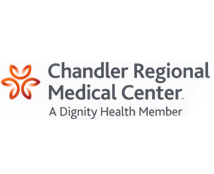An Overview of EKG Testing from a Mesa AZ Cardiologist
Sometimes, the doctor may find it necessary to order an electrical rhythm recording of your heartbeat. Also called an EKG, electrocardiograms are useful for diagnosing arrhythmias of the heart. There are three type of EKGs: the basic resting EKG, signal-averaged EKG, and the exercise EKG.
Anatomy and Physiology of the Heart
Your heart is a pumping organ that is made up of muscle tissue. This unique structure uses oxygen as its source of energy, and the pumping action is determined from an intricate electrical conduction system. An electrical stimulus causes the heart to beat. This stimulus is produced by the sinoatrial node (SA node or sinus node), which is a tiny area of tissue found in the right upper chamber (atrium) of the heart. This node gives off a stimulus approximately 60 to 100 times per minute in the normal heart. Just like electricity passing from the power plant to your house, the stimulus passes through certain pathways and causes the lower chambers of the heart (ventricles) to contract. This contraction forces out blood to the body organs. Each contraction of the ventricles equals one heartbeat.
Arrhythmias
Arrhythmias are abnormal heart rhythms. These can occur when the heart’s normal pacemaker (the SA node) malfunctions, when the normal conduction pathway is disturbed, or when another part of the heart produces a pacing effect. Many individuals experience irregular heartbeats on occasion. The significance of these irregular heartbeats depends on how often they occur, why type of symptoms they produce, the type of rhythm pattern they elicit, and how long they last.
The Basic Resting EKG
An electrocardiogram (ECG or EKG) is a measurement of your heart’s electrical activity. This is a simple test that involves electrodes being placed on your chest, legs, and arms. The diagnostic device picks up the electrical activity of the heart and produces a graphic representation. Cardiologists in Phoenix can use those rhythm strips to better understand how your heart is functioning at that one minute in time.
The Phoenix cardiologist will order a basic resting EKG routinely, as a screening, or for diagnostic purposes. The EKG is a simple, painless, inexpensive test that can determine an undetected condition or new heart disorder. Some medical conditions cause EKG pattern changes. This table explains them.
Signal-Averaged EKG
The signal-averaged EKG is done much like the basic resting electrocardiogram. However, the device records your heart’s electrical activity over a 20 minute time period. This diagnostic test is done when the doctor suspects an arrhythmia that was not seen on the basic EKG.
Exercise EKG Test
Also called a stress test, the exercise EKG is a diagnostic procedure that involves conducting an electrocardiogram while you are exercising. Rather than lying down to take the test, you either walk or run on a treadmill or pedal a stationary bicycle. This test assesses changes of your heart rhythm that occur during exercise or stress.
| Condition | What Occurs | What Causes It |
| Ischemia | Lack of blood flow | Obstruction in an artery |
| Conduction Disorder | Abnormal heartbeat (too fast or too slow) | Dysfunction in the electrical conduction system |
| Heart Attack | Damage to the heart muscle | Insufficient blood supply |
| Chest Trauma | Chest pain and discomfort | Injury to the chest wall, ribs, or heart |
| Pericarditis | Chest pain and discomfort | Inflammation of the sac that covers the heart |
| Electrolyte Disturbance | Muscle cramps, chest pain, weakness, dizziness | Imbalance in the level of electrolytes in the blood (potassium, calcium, sodium, magnesium) |
| Valvular Heart Disease | Shortness of breath, chest pain, swelling | Defective heart valve(s) |
AZ Heart Doctor is the leading Phoenix cardiologist with offices in Tempe and Mesa. The Double Board Certified cardiologist supplies the East Valley with comprehensive noninterventional services including EKG’s, ultrasounds, stress testing and more. Most insurance is accepted. Call (480) 300-4646 for more information and scheduling today!












Leave a Reply